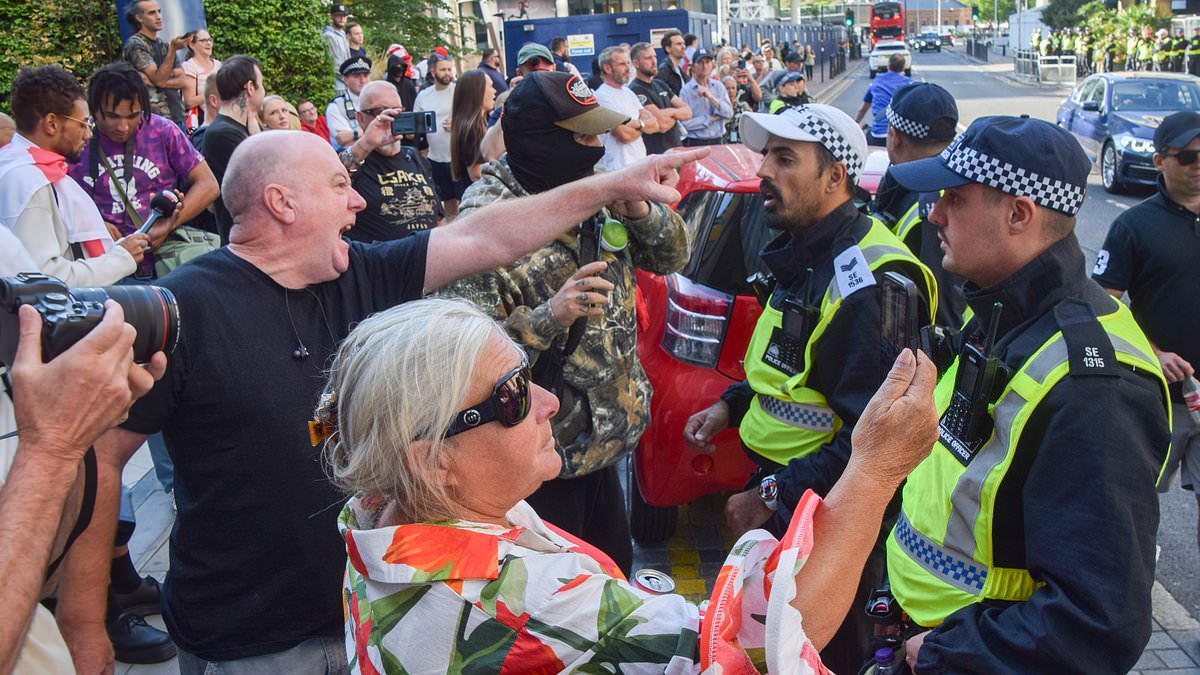
Canary Wharf, once celebrated as London’s top financial hub and nicknamed a ‘miniature Manhattan,’ is now a focal point of controversy following its use as a migrant housing site. The conversion of the four-star Britannia Hotel into a temporary residence for asylum seekers has sparked daily protests and concerns among residents.
Tensions Escalate in Canary Wharf
Protests have erupted outside the Britannia Hotel, located in the heart of East London’s financial district, after Tower Hamlets Council confirmed it had been handed to the Home Office to house migrants. This has led to heightened tensions, with local residents voicing fears about safety and the lack of community consultation.
Susan Hall, a Conservative Assembly member, criticized London Mayor Sadiq Khan, blaming his policies for Canary Wharf’s decline. “This was once a prestigious area, and now it has been turned into a dumping ground without considering the safety and well-being of local families,” said Hall. Locals have echoed these sentiments, with many forming neighborhood groups to feel safer or considering moving out of the area.
Crime and Safety Concerns
The situation took a concerning turn when a migrant staying at the Britannia Hotel was arrested after entering a local woman’s home. This incident, alongside increasing reports of unease among residents, has only amplified the opposition to this initiative. A Home Office spokesperson has assured the public that foreign nationals who commit crimes will face deportation after serving sentences. However, frustrations persist among community members.
“I don’t feel safe,” shared Eleano Borisenko, a Canary Wharf resident. “We weren’t consulted, and now we’re left to deal with the consequences. It’s deeply unsettling.” These sentiments are shared by others who highlight both safety issues and the financial burden on taxpayers due to the need for constant security and additional policing.
Canary Wharf’s Struggles Amid Corporate Departures
The controversy comes at a challenging time for Canary Wharf, which has been grappling with declining demand for office space post-pandemic. Major firms like HSBC and Clifford Chance have announced plans to vacate their offices in the area, contributing to a slower economic revival for the financial district.
Despite recent data showing a slight increase in the valuation of Canary Wharf’s office properties, residents and business leaders fear the negative publicity surrounding the Britannia Hotel could further damage the district’s reputation.
Protests and Counteractions
Demonstrations at the Britannia Hotel have brought protesters and counter-protesters into conflict. On one side, anti-migrant demonstrators express frustration about safety concerns and government spending. On the other, groups advocating for refugee rights argue for compassion and humane treatment of asylum seekers.
Police have been forced to deploy significant resources to manage these opposing groups. Incidents such as the arrest of protesters for disorderly conduct showcase the tensions engulfing the area, with no clear resolution in sight.
Looking Ahead
Canary Wharf’s transformation from a financial powerhouse into a complex focal point of political and social debate highlights broader issues surrounding immigration policy, urban planning, and local governance. For now, the controversy surrounding the Britannia Hotel and its impact on the area’s recovery remains a contentious topic for both locals and policymakers.





